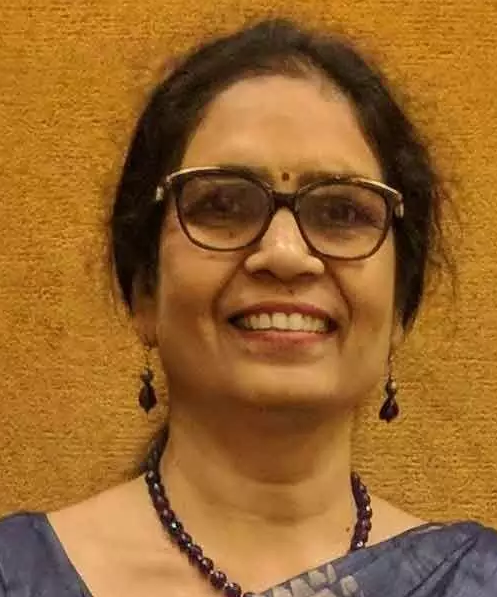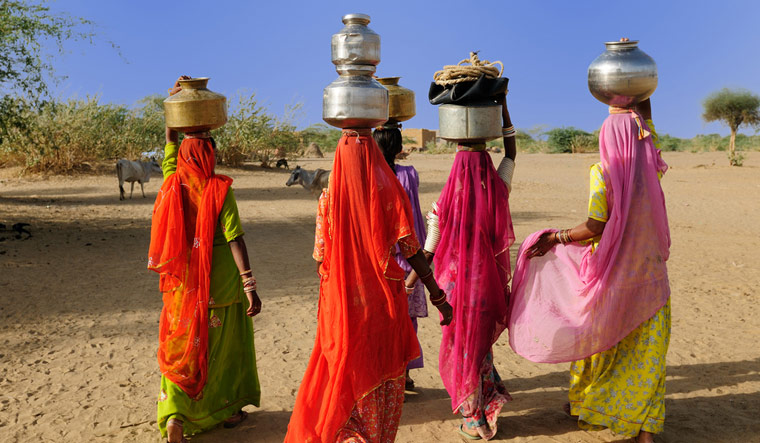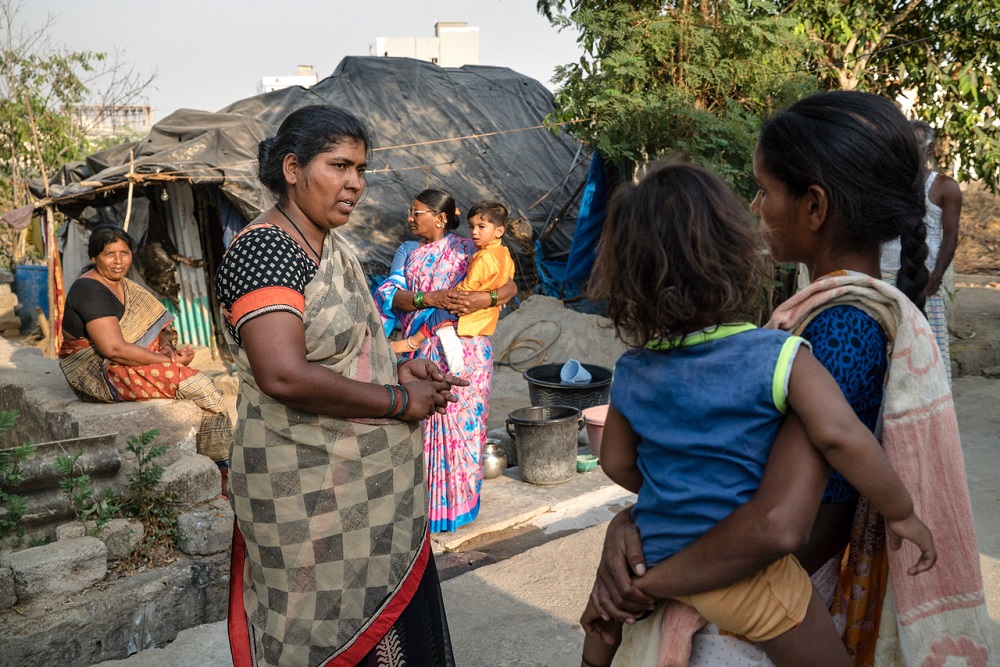

Data-driven, decentralised Small Water Enterprises of Safe Water Network empower women by improving access to household water and enhancing their economic participation in the water sector. The model is ready for broad-scale replication.
India is home to 16 per cent of the global population, but it has only 4 per cent of the world’s freshwater resources. Its wells, ponds, and tanks are drying up at an accelerating rate due to overexploitation and unsustainable consumption. The groundwater in over 250 of its 700-odd districts remains at a critical level. Repeated droughts and climate change further exacerbate water stress.
Water contamination is another cause of significant concern. Over 70 per cent of surface water sources in the country are contaminated by human, animal, and industrial waste. About 100 million people lack access to safe drinking water. Estimates claim that as much as 70 per cent of India’s disease burden is related to either water or sanitation.
Water supply, especially in rural areas, is not reliable. Piped water supply is still a distant dream. And owing to factors like lack of maintenance, operational controls, and unsustainable sources, a significant portion of water systems in villages are dysfunctional.
The imbalances in gender roles continue to undermine women’s interests and deprive them of their rights. Water equity has a direct bearing on gender equity. Though women do the entire water work, there are rarely informal technical and managerial jobs in the water sector. In India, women account only for 17 per cent of India’s labour force in the Water, Sanitation, and Hygiene sector.
It’s a Women’s Problem
India’s water woes affect more women than men. Like cooking, water collection is considered a woman’s job. Collecting water becomes a time-consuming and arduous task with the nearest water source about 30 minutes away by foot. Carrying heavy water vessels for long distances is both physically demanding and damaging. A UNICEF report calculates that women in water-deprived households in countries like India spend over 250 minutes per day on water tasks. The time spent on water collection should ideally go to their productive work or education.

The imbalances in gender roles continue to undermine women’s interests and deprive them of their rights. Water equity has a direct bearing on gender equity. Though women do the entire water work, there are rarely informal technical and managerial jobs in the water sector. In India, women account only for 17 per cent of India’s labour force in the Water, Sanitation, and Hygiene sector.
Women in Water Sector

Women have unique knowledge about water resources. Equal representation of women in leadership roles in the management of water bodies creates better social and economic impact. The involvement of women in water governance paves the way for gender-inclusive water policies, improves sustainability, and addresses women’s concerns. A pragmatic approach to meaningfully engaging women in the water sector is inevitable for the country to scale up and ensure resilience in the water supply. Various studies from across Asia and Africa are consistent in their findings that women’s engagement boosts the effectiveness of water projects on many fronts.
Low Tech, High Touch
 In this context, we at Safe Water Network (SWN), embarked on setting up data-driven and decentralised Small Water Enterprises (SWEs) in rural India. Our first functional water station commenced operation in 2010. Our primary objective is to train local communities to operate and maintain a convenient and reliable safe water supply at a nominal price. However, in 2016, we introduced a crucial element to the equation: expanding the role of women in the water sector.
In this context, we at Safe Water Network (SWN), embarked on setting up data-driven and decentralised Small Water Enterprises (SWEs) in rural India. Our first functional water station commenced operation in 2010. Our primary objective is to train local communities to operate and maintain a convenient and reliable safe water supply at a nominal price. However, in 2016, we introduced a crucial element to the equation: expanding the role of women in the water sector.
Under the brand name – iJal, we initiated locally-owned and  operated water treatment and dispensing units. The water they produce is affordable, and the water supply is reliable. These units have different ownership models: they are operated as community-managed entities or social enterprises. iJal stations have a critical mass of customers and generate revenue sufficient to cover operating costs, repairs, and routine maintenance. As locally self-sustainable models, these enterprises have the resources to meet their monthly operating expenses and generate local livelihood for the operator, entrepreneur, etc.
operated water treatment and dispensing units. The water they produce is affordable, and the water supply is reliable. These units have different ownership models: they are operated as community-managed entities or social enterprises. iJal stations have a critical mass of customers and generate revenue sufficient to cover operating costs, repairs, and routine maintenance. As locally self-sustainable models, these enterprises have the resources to meet their monthly operating expenses and generate local livelihood for the operator, entrepreneur, etc.
 iJal enterprises usually draw water from locally available resources. They can run on solar power and thus serve even off-grid communities.
iJal enterprises usually draw water from locally available resources. They can run on solar power and thus serve even off-grid communities.
A critical entity that ensures the operational excellence of water stations is the ‘Field Service Entity’ (FSE). Located in every geographic cluster, FSEs provide technical support in the operations and maintenance of the stations. Besides, the spare parts are locally available. Since they have 24×7 technical support from qualified technicians, the downtime is less than 2 per cent.

Women have unique knowledge about water resources. Equal representation of women in leadership roles in the management of water bodies creates better social and economic impact. The involvement of women in water governance paves the way for gender-inclusive water policies, improves sustainability, and addresses women’s concerns. A pragmatic approach to meaningfully engaging women in the water sector is inevitable for the country to scale up and ensure resilience in the water supply.
The water stations are enabled for remote monitoring using satellite communication. They collect data 24×7. The data is transmitted to operators in real-time to address technical issues and prevent breakdowns. Each water station pays a service fee to Field Service Entities. They also contribute to a ‘Sustainable Fund’ for long-term asset renewal. The enterprises issue RFID cards for customers and accept e-Payments. The water is dispensed automatically. Members across the team use mobile phones and tablets for operations and communications.
We have evolved water quality protocols with the support of Underwriters Laboratories, a global and independent safety science organisation. The team is well-trained and equipped to maintain the established quality standards. Enterprises across clusters strictly adhere to these tested protocols and consistently achieve water quality that meets the national standard.
The benefits to society are tangible. Families that consume iJal water can reduce their medical expenses as the rates of children and elders falling sick have come down. School absenteeism of girls in the local communities is drastically reduced.



Effective Leadership
|
As managers, women from the local community own and manage iJal water stations that house automatic water treatment units – Water ATMs. These social entrepreneurs in the iJal value chain employ operators and manage the enterprise with technical and managerial support from us. Women trained in operations and management of iJal Water ATMs work as field executives. Their job involves supporting and monitoring the operators of Water ATMs. Women are employed as Community Mobilisers. Their role is to create awareness among local residents about using safe water and enrolling them as customers. They also champion the cause of safe water usage and promote healthy water behaviour.
Empowering Women the Safe Water Network Way
The entire project is based on multiple and cross-sectoral collaborations with private and government agencies, besides the local community, at various levels – from design to implementation. These partnerships help us achieve scale.
 At present, we have about 350 water stations in four States – Telangana, Maharashtra, Rajasthan, and Uttar Pradesh. Every day, around three lakh people buy water from the iJal network. Most of the water stations are owned and operated by women social entrepreneurs. There are nearly 200 women that are now part of the iJal value chain.
At present, we have about 350 water stations in four States – Telangana, Maharashtra, Rajasthan, and Uttar Pradesh. Every day, around three lakh people buy water from the iJal network. Most of the water stations are owned and operated by women social entrepreneurs. There are nearly 200 women that are now part of the iJal value chain.
 As managers, women from the local community own and manage iJal water stations that house automatic water treatment units – Water ATMs. These social entrepreneurs in the iJal value chain employ operators and manage the enterprise with technical and managerial support from us. Women trained in operations and management of iJal Water ATMs work as field executives. Their job involves supporting and
As managers, women from the local community own and manage iJal water stations that house automatic water treatment units – Water ATMs. These social entrepreneurs in the iJal value chain employ operators and manage the enterprise with technical and managerial support from us. Women trained in operations and management of iJal Water ATMs work as field executives. Their job involves supporting and  monitoring the operators of Water ATMs. Women are employed as Community Mobilisers. Their role is to create awareness among local residents about using safe water and enrolling them as customers. They also champion the cause of safe water usage and promote healthy water behaviour. Women operators take care of the day-to-day operations of the water units and the business of the water enterprises. Our value chain also has women retailers who sell the treated water from their shops and houses for a margin. They help enhance access to water in a given locality. Some of the women have co-invested in the programme, becoming entrepreneurs.
monitoring the operators of Water ATMs. Women are employed as Community Mobilisers. Their role is to create awareness among local residents about using safe water and enrolling them as customers. They also champion the cause of safe water usage and promote healthy water behaviour. Women operators take care of the day-to-day operations of the water units and the business of the water enterprises. Our value chain also has women retailers who sell the treated water from their shops and houses for a margin. They help enhance access to water in a given locality. Some of the women have co-invested in the programme, becoming entrepreneurs.
Transforming women from mere water collectors into water managers is a multidimensional challenge. It involves strategies to motivate and mobilise them. We evolved a unique framework of the QUIT technique that stands for Question, Undo, Involve, and Trust. Through campaigns, women are encouraged to question barriers and stereotypes around their roles. We organise meetings and invite local leaders to give motivational talks. We also organise activities to encourage women to free themselves from age-old attitudes, norms, and behaviours. With technical and life skills training, they gain self-confidence.
What Makes SWEs Tick
Some of the critical factors that contribute to the success of iJal are consumer participation in buying their daily water in a 20L can, locally operated and maintained iJal station by the operators and Field Service Entity. Coupled with technology application in training through audio-video e-Modules, automatic dispensing, remote monitoring, and digital payment, it increases the scale. The expansion is always based on geographic clusters that enable the project to achieve economies of scale and develop a cost-effective supply chain. There is an unwavering commitment to building capacity in local communities. There is a solid structure for extending operational support.
The solution believes in customisation. The plants are customised for the local conditions and context. For instance, we assess water sources to understand the prevalence of contaminants in raw water specific to the location and designs suitable solutions.
Above all, the project regards people not as beneficiaries but as consumers. The emphasis is on self-sustainability. The idea is to enable the units to generate income for owners while providing the community with access to a safe, affordable, reliable water supply.
Marketing and Training
 We run marketing campaigns on health outcomes and invest in the education and training for its team. We hand-hold social entrepreneurs, primarily women, and engage them right from the design stage. Our multi-functional expert team assists the women in site selection, construction, and water sourcing. Experts also provide operators and other staff training and tools in water treatment, maintenance, performance diagnosis, and auditing.
We run marketing campaigns on health outcomes and invest in the education and training for its team. We hand-hold social entrepreneurs, primarily women, and engage them right from the design stage. Our multi-functional expert team assists the women in site selection, construction, and water sourcing. Experts also provide operators and other staff training and tools in water treatment, maintenance, performance diagnosis, and auditing.
 We have a training e-Toolkit called iSWEET – Digital Safe Water Enterprise Entrepreneur Toolkit. It has ten modules and 63 tools to train in Water ATMs’ operation and management. The project seeks a more significant role and involvement of women in understanding, creating, deploying, and operating the water services.
We have a training e-Toolkit called iSWEET – Digital Safe Water Enterprise Entrepreneur Toolkit. It has ten modules and 63 tools to train in Water ATMs’ operation and management. The project seeks a more significant role and involvement of women in understanding, creating, deploying, and operating the water services.
Women are empowered to make decisions in managing the SWEs. They gain financial literacy, operational knowledge, and managerial skills.



Leading from the Front |
Overcoming Barriers
But there are many social, political, and institutional obstacles for women to come out of their homes and take up technical and managerial jobs in the water sector. Traditionally, women in India do not significantly influence the formal labour market – be it in water or any other sector. The prevailing societal mindset does not readily acknowledge women’s potential and their role as changemakers. Most rural families accuse working women of neglecting household duties such as raising kids, maintaining the house, and looking after the elderly. Women themselves usually lack confidence and the necessary vocational skills. They fear jobs, especially those involving technical skills. These factors can explain why women account only for 26 per cent of the workforce in India. While the global average of women’s contribution to the GDP of their country is 37 per cent, it is still 17 per cent in India.
 Hence, transforming women from mere water collectors into water managers is a multidimensional challenge. It involves strategies to motivate and mobilise them. We evolved a unique framework of the QUIT technique that stands for Question, Undo, Involve, and Trust. Through campaigns, women are encouraged to question barriers and stereotypes around their roles. We organise meetings and invite local leaders to give motivational talks. We also organise activities to encourage women to free themselves from age-old attitudes, norms, and behaviours. With technical and life skills training, they gain self-confidence.
Hence, transforming women from mere water collectors into water managers is a multidimensional challenge. It involves strategies to motivate and mobilise them. We evolved a unique framework of the QUIT technique that stands for Question, Undo, Involve, and Trust. Through campaigns, women are encouraged to question barriers and stereotypes around their roles. We organise meetings and invite local leaders to give motivational talks. We also organise activities to encourage women to free themselves from age-old attitudes, norms, and behaviours. With technical and life skills training, they gain self-confidence.
Ready for Replication
Making women central to water management is the need of the hour. It calls for innovative perspectives. The team that conceived the market-based water solution comprised of technical, financial, health, and development experts. We have prepared a set of manuals and toolkits to share the knowledge and expertise in the conceptualisation, deployment, and operation of these small water enterprises. They explain the step-by-step process of engaging the communities – especially women, to own and operate SWEs successfully.

Under the USAID-supported programme working with Safe Water Enterprise partners, the programme has scaled up to 11 States and 20 cities. With broad-scale replication of this data-driven and market-based solution, the water-stressed Indian communities can acquire a reliable solution for water supply and achieve economic participation and, thus, empowerment of women sustainably and equitably.



